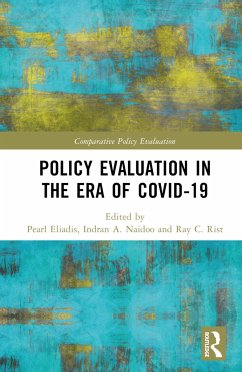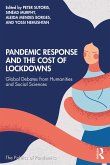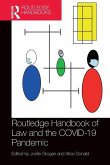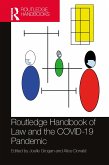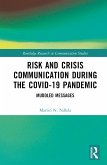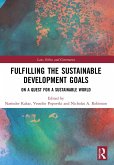Did evaluation meet the challenges of the COVID-19 crisis? How were evaluation practices, architectures, and values affected? Policy Evaluation in the Era of COVID-19 is the first to offer a broad canvas that explores government responses and ideas to tackle the challenges that evaluation practice faces in preparing for the next global crisis. Practitioners and established academic experts in the field of policy evaluation present a sophisticated synthesis of institutional, national, and disciplinary perspectives, with insights drawn from developments in Australia, Canada and the UK, as well as the UN.
Contributors examine the impacts of evaluation on socioeconomic recovery planning, government innovations in pivoting internal operations to address the crisis, and the role of parliamentary and audit institutions during the pandemic. Chapters also example the Sustainable Development Goals, and the inadequacy of human rights-based approaches in evaluation, while examining the imperative proposed by some authors that it is time that we take seriously the call for substantial transformation.
Written in a clear and accessible style, Policy Evaluation in the Era of COVID-19 offers a much-needed insight on the role evaluation played during this unique and critical juncture in history.
The Open Access version of this book, available at https://www.taylorfrancis.com/books/oa-edit/10.4324/9781003376316, has been made available under a Creative Commons Attribution-Non Commercial-No Derivatives 4.0 license.
Contributors examine the impacts of evaluation on socioeconomic recovery planning, government innovations in pivoting internal operations to address the crisis, and the role of parliamentary and audit institutions during the pandemic. Chapters also example the Sustainable Development Goals, and the inadequacy of human rights-based approaches in evaluation, while examining the imperative proposed by some authors that it is time that we take seriously the call for substantial transformation.
Written in a clear and accessible style, Policy Evaluation in the Era of COVID-19 offers a much-needed insight on the role evaluation played during this unique and critical juncture in history.
The Open Access version of this book, available at https://www.taylorfrancis.com/books/oa-edit/10.4324/9781003376316, has been made available under a Creative Commons Attribution-Non Commercial-No Derivatives 4.0 license.
"The diversity and richness of the topics show immediately how important the book is. The findings ... to name a few, [such as] the deprioritization of evaluation during the crisis, the taken-for-grantedness of a number of underlying assumptions, describes [the] many efforts of evaluators."
Frans L Leeuw, Professor Law, Public Policy and Social Sciences, Maastricht University
"The strength of the book is the combination of the perspectives and the relevant insights they present. The book is undoubtedly timely, relevant, and important, not only for understanding what happened during the past years, but also in preparing for what will come."
Per Øyvind Bastøe, Associate professor, VID Specialized University, Oslo, Norway
"This is a timely book for policy evaluators, policy makers and politicians. [...] The book has been complied by practitioners and established academic experts in the field of policy evaluation. They present a sophisticated synthesis of institutional, national, and disciplinary perspectives. The book appears in nine chapters, together with an introduction and an afterword."
Thomas Ferris, Public Affairs Ireland
Frans L Leeuw, Professor Law, Public Policy and Social Sciences, Maastricht University
"The strength of the book is the combination of the perspectives and the relevant insights they present. The book is undoubtedly timely, relevant, and important, not only for understanding what happened during the past years, but also in preparing for what will come."
Per Øyvind Bastøe, Associate professor, VID Specialized University, Oslo, Norway
"This is a timely book for policy evaluators, policy makers and politicians. [...] The book has been complied by practitioners and established academic experts in the field of policy evaluation. They present a sophisticated synthesis of institutional, national, and disciplinary perspectives. The book appears in nine chapters, together with an introduction and an afterword."
Thomas Ferris, Public Affairs Ireland

